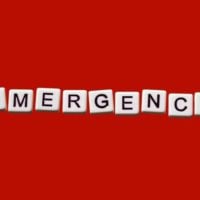Deadline: 30-Jun-25
Are you ready to bring your innovative coding project to life or scale up your existing initiatives? The Code4Europe Consortium is creating a grant system to promote grassroots projects that propose activities that significantly support the priorities of CodeWeek.
The purpose of the grants is to identify and support coding projects that align with the principles of the EU Code Week to promote programming, algorithmic thinking and digital tools among young people, in particular girls, across Europe
Objectives
- The main objectives include:
- Developing innovative and scalable coding activities
- Supporting initiatives that integrate coding into an educational context and enhance participation
- Encouraging community participation and strengthening collaboration between stakeholders
- Prioritizing projects that bridge the gender gap and promote diversity in STEM education
Funding Information
- Funding of €500 – €1000 will be awarded to successful applications based on their quality and impact.
Eligibility Criteria
- Eligible candidates include:
- Schools (Kindergarten, elementary, middle and high school),
- Libraries and similar institutional bodies,
- Non-Governmental Organizations (NGOs),
- Private organizations and coding clubs,
- Associations specialized in coding and computational thinking.
Evaluation Criteria
- Proposals will be evaluated based on the following:
- Presentation, which evaluates the work through the categories of clarity and completeness.
- Design Relevance, which evaluates the relevance of the objectives in relation to the Week of Code Priorities and whether the design of the activities is consistent with these objectives and is appropriate for their achievement. In addition, the feasibility of the activities is evaluated taking into account the timeline of the activities as well as the professional, organizational and available technological resources.
- Coding and Computational Thinking Education, which evaluates the centrality of coding and computational thinking through the proposed use of coding approaches (block languages, unplugged coding, etc.), languages and mediators.
- Quality of the proposal, which is assessed by taking into account didactic elements, such as methodological choices: the connection of the proposal to key disciplines (literacy, numeracy, data and digital literacy – OECD Learning Compass, CoE Keis Responsibilities for LLL 2018). The following elements are also taken into account: the use of evaluation tools, the development of synergy in territorial contexts and collaborative networks to improve the effectiveness of the initiative and the participation of the various stakeholders. Finally, the following features are assessed: a broader time frame extending before and beyond the time dimension of the single “week”, the sharing of resources and materials to promote the replicability of the activities.
- Impact is assessed taking into account: the participation of multiple classes, schools, different categories of participants and the local context. The special attention to the participation of girls and the promotion of STEM education is also assessed.
For more information, visit EU Code Week.









































